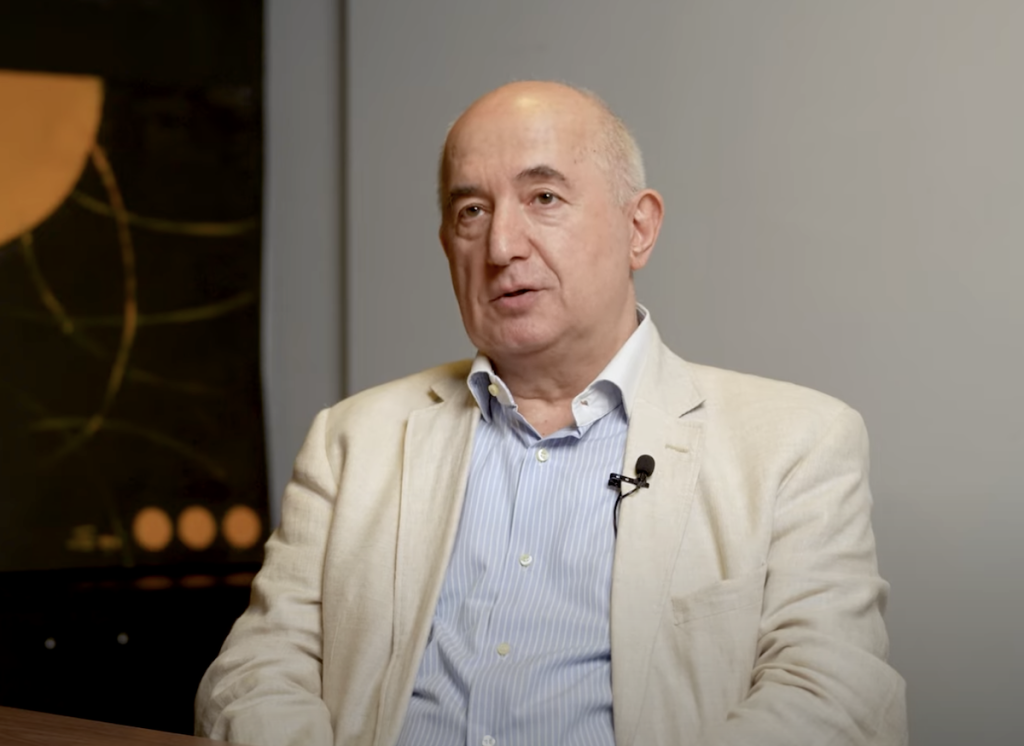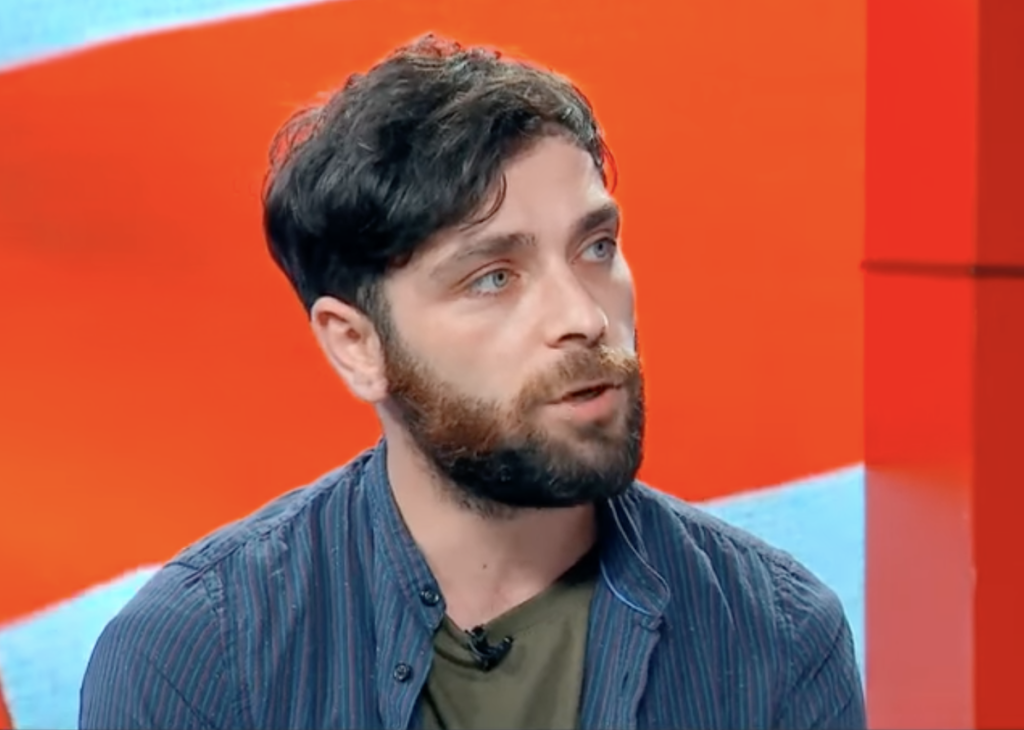Russia demanding the Pitsunda estate. Why is Tbilisi silent?
Russia demands land in Pitsunda from Abkhazia
In July, by decision of the government of Abkhazia, the Pitsunda seaside estate and a surrounding 180 hectares is to be transferred to Russia. The estate is also a nature preserve home to a species of relict pine.
The transfer is being demanded by Moscow. In order for the decision to become final it must be ratified by the Abkhaz parliament, although this process is being delayed due to a huge outcry from Abkhaz society.
Russia turned to threats to get what it wants. Russian Ambassador to Abkhazia Mikhail Shurgalin said that if Abkhazia does not transfer the estate, Russia would stop investing in Abkhazia and close the military base.
- About the properties which Russia wants from Abkhazia – Commentary
- The president and the trout farm: Abkhazian opposition leader on the authorities’ loss of legitimacy
- Russia may stop investing in Abkhazia and close military base if not given Pitsunda estate
- Moscow threatens Abkhazia; is normalization possible? Expert analysis, video
Throughout this episode, Tbilisi has remained silent. President Salome Zurabishvili has said only that “what we see in Pitsunda is a form of annexation of the territory of Georgia by Russia.” In response, Prime Minister Garibashvili said that “it is not worth causing a stir” over Pitsunda.
Representatives of the Georgian authorities have also not discussed the issue with ambassadors and members of the international community.
How do experts assess Tbilisi’s reaction and what motivation do they see in the silence of the Georgian authorities? JAMnews addressed these questions to conflictologist Paata Zakareishvili and head of the Facebook page “News of Abkhazia”, activist Gela Khasay:

Paata Zakareishvili, conflictologist:
What is happening in Abkhazia is a very painful story for Abkhazians. Russia is trying to twist Abkhazia’s arm. It is clear that even the Abkhaz authorities are trying to somehow avoid this disaster – they are playing for time and, probably, are telling Moscow behind the scenes that this will not work out, that it is not the best time do it, it should not be ratified.
But Moscow is not backing down. Shurgalin made matters worse when he threatened that Russia would close the Gudauta base from Abkhazia.
Of course, this is an absurd threat, a fairy tale. Close the base in Gudauta? Ever since the days of the Soviet Union, the base in Gudauta has been essential to Russia in the Black Sea and the Caucasus. The Russians do not have such a large base in Gyumri as in Gudauta. This base is more important for Russians than for Abkhazians. It is in their hands. When this base was opened, no one asked the Abkhaz about anything.
Not the withdrawal of the base, but cessation of aid is a serious threat. They may stop helping, and obviously the Abkhaz are very afraid of this.
However, even in face of this fear, they show that it is unacceptable for them to transfer the land to Russia. Their argument is that they fought the Georgians for this land, we put our boys in the ground, this land is watered with their blood, and if the Russians take it away, then what’s the difference between Georgians and Russians?
Tbili’s silence is surprising. They should in fact be speaking out. They must tell the world that despite the Georgian government’s policy of promoting good relations with Russia, Russia continues to annex Georgian territory; that resolution with Russia did not bring results, as Russia continues to appropriate the territory of Georgia.
After the start of the war in Ukraine, Georgia’s policy completely changed. It became absolutely cowardly. What they are doing now is amazing. For example, two years ago the Georgian government issued statements in defense of the Abkhazian village of Aibga, which had been captured by the Russians.
President Salome Zurabishvili spoke on behalf of the authorities, followed by a statement by Prime Minister Garibashvili that there was no need for hype. The Abkhaz formally replied to Zurabishvili, saying that what is happening in Abkhazia does not concern you, but in fact they liked the statement of the President of Georgia. It’s one thing what they say out loud, and another what they really think.
In fact, they would be very happy if Tbilisi sounded the alarm and let the whole world know what is happening. Abkhazians do not have the opportunity to do this. They are alone with this problem and Tbilisi could help them.
In the eyes of the world, itlooks as if Georgia is not interested in this topic and is giving Russia a pass. And if Georgia forgives the appropriation of its territory by Russia, then why should anyone else bother? By our silence, we give the Russians carte blanche to do whatever they want in Abkhazia.
So this is why the Georgian should speak up. If it doesn’t, we are off the radar.
As for the reaction of Georgian society, the civil sector has made statements, there was a small and weak action. Mass demonstration is an effective method. At least one mass demonstration would work, like when they petitioned for EU candidate status. The people should demand a reaction from their government and to protect the territory of Georgia.

Gela Khasaya, head of Abkhaz News:
When the Pitsunda affair began, we launched a social media campaign and tried to draw public attention to this story, because neither the government nor the opposition at first made any comment. The Georgian political spectrum did not notice this problem at all. Then the opposition “engaged” in this process, making public comments and disseminating information mainly about how the Abkhaz themselves are against this.
There was no response from the government. There was a statement by Zurabishvili and a comment by Garibashvili, who would have been better off not saying anything, because it was a total non-statement and made matters worse. As he said, Georgian society should not cause a stir about it.
Several organizations and activists held actions near the Ministry of Foreign Affairs, the Government Chancellery. We submitted a letter to the Office, where we asked them to formally address the international community and make a statement. There was no answer.
This is absolutely incredible, because for the first time in the history of the occupation, the Abkhaz are protesting the Russian Federation.
This can be seen in television interviews with the leaders of the Abkhaz opposition, from the statements of civil activists, from the activity of Abkhaz youth, who even created an organization to protest this process.
They hold rallies and came out with the slogan that “friendship cannot be achieved at the cost of land”, and Russia should not have “Nazi” demands on Abkhazia. This is indeed the first time they have come out so openly and en masse against Russia. And what is most interesting, Russia threatened that if they did not stop, they would cut off financial assistance.
The people who are actually fighting for us are under pressure. Our starting point should be the struggle against annexation, which began many years ago and continues to this day, right now, with the example of Pitsunda.
The government must do everything to show the Abkhazians that they have someone behind them whom they can count on in a critical situation.
In fact, today the Abkhaz have no one to rely on in case of an escalation of tension. Perhaps we could be a bridge for these people, but, as I said, they did not receive any message from us.
Without the will of Tbilisi, no one, not a single international actor, can interfere in this process. And those countries that have recognized their independence are under the rule of Russia.
No matter what we activists do, the country is represented by the government, so a clear position by the authorities is very important. First of all, activity in the international arena. Now, when we are in the process of obtaining candidate status for the EU, the European Union is paying great attention to us. We have an important podium that we don’t use.
If we spoke to them about this topic now, it would go beyond the borders of Georgia and I am sure that there would be a clear answer from the West.
Th government’s silence and Garibashvili’s statement indicate that our government is busy helping Russia. Government policy is to accustom us to the occupation.
The second problem is that there is also no corresponding reaction from the opposition. Unfortunately, this is not properly covered in the media.
If there is appropriate pressure from the opposition and the media, then the government will be forced to respond. We should not ask members of the government to make a statement, it should be their priority because it is their duty and responsibility.
Terms, place names, opinions and ideas suggested by the author of the publication are their own and do not necessarily reflect the opinions and ideas of JAMnews or its employees. JAMnews reserves the right to remove comments on posts deemed offensive, threatening, violent, or otherwise ethically unacceptable.
Russia demands land in Pitsunda from Abkhazia


















